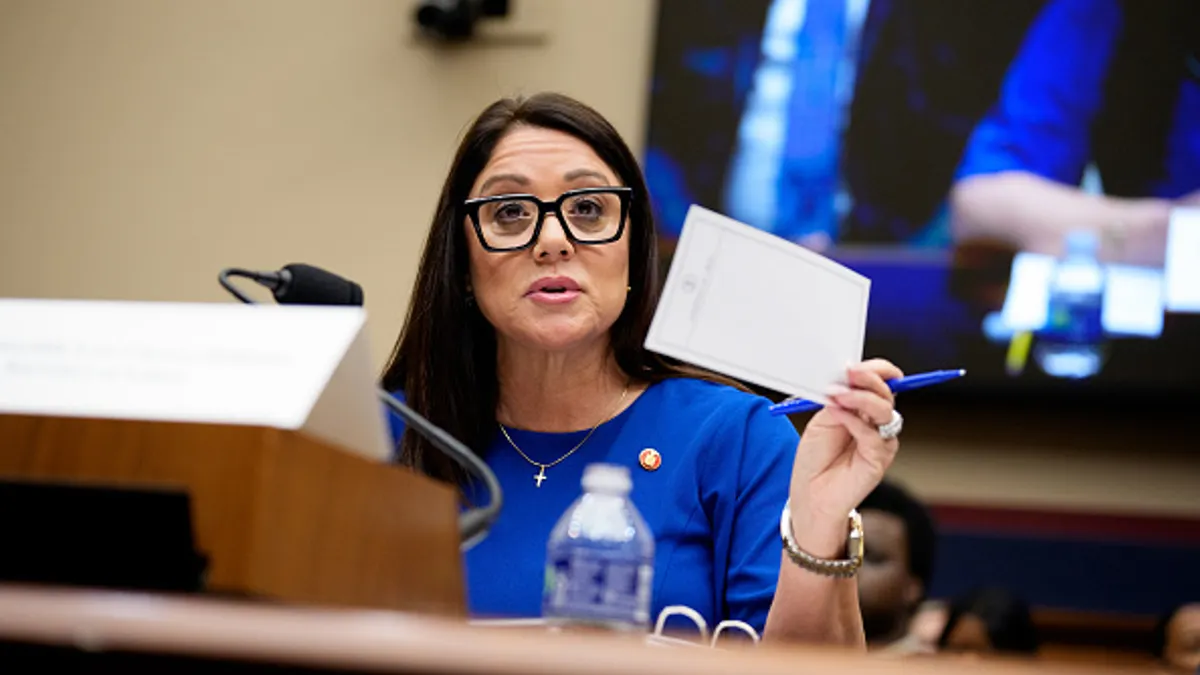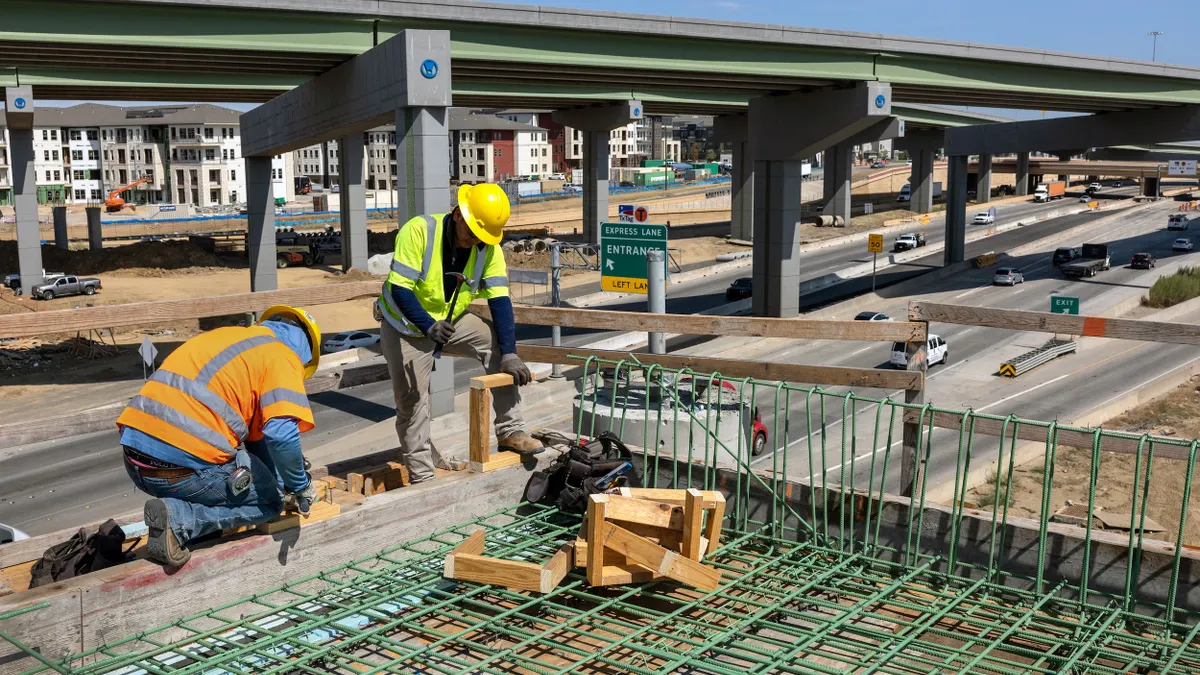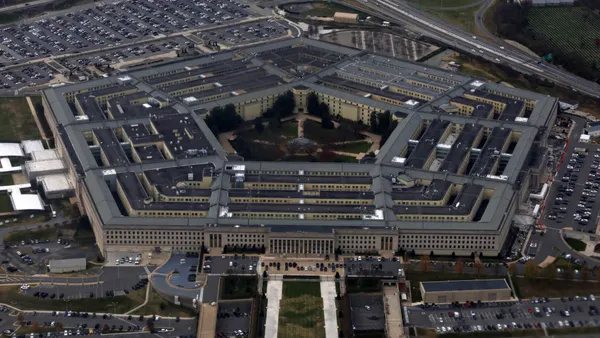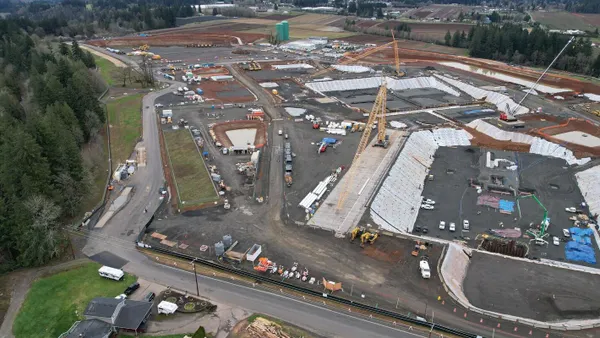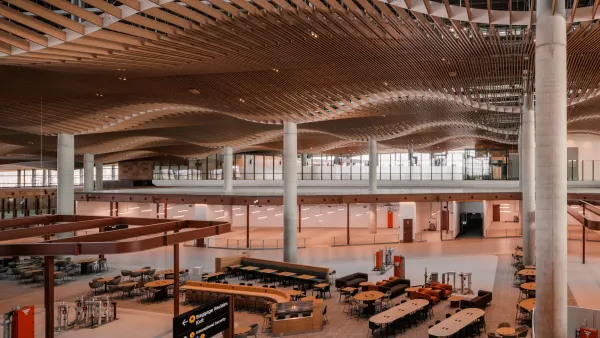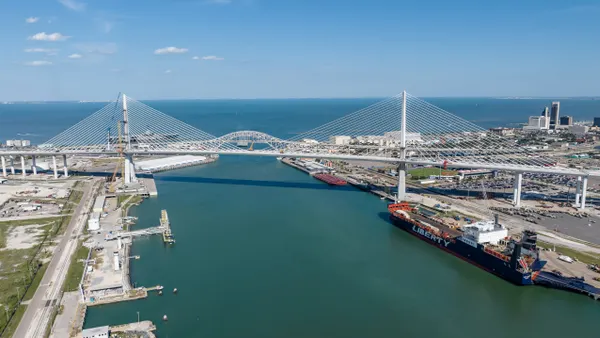Dive Brief:
- Democrat Rep. Peter DeFazio of Oregon, chair of the U.S. House Transportation and Infrastructure Committee, introduced a $494 billion transportation bill Wednesday that would see investments in critical road, bridge, rail, mass transit and resiliency projects.
- The Investing in a New Vision for the Environment and Surface Transportation in America (INVEST in America) Act would dole out the funding over five years, providing $319 billion for the federal aid highway program administered by the Federal Highway Administration (FHWA); $105 billion for Federal Transit Administration programs; $5.3 billion for National Highway Traffic Safety Administration programs; $4.6 billion for the Federal Motor Carrier Safety Administration; and $60 billion for rail projects. The funding in the bill represents a 46% increase in investments in the FHWA's Highway Trust Fund, which allocates money to the states for surface transportation projects.
- The committee is scheduled to take up the bill June 17. Since funding for current construction transportation programs under the FAST (Fixing America's Surface Transportation) Act will expire Sept. 30, reauthorization of these federal spending programs is a priority, according to the committee.
Dive Insight:
Under its proposed funding scheme, the INVEST in America Act would also provide:
- $83.1 billion in fiscal year 2021 for COVID-19 recovery projects.
- $28 billion for "fix-it-first" bridge investment.
- $8.4 billion for carbon reduction programs.
- $6.3 billion for resilience and emergency evacuation projects.
- $49 billion for local transportation projects.
- $9 billion in discretionary grants for large highway, transit and freight projects.
- $3.9 billion for traffic safety programs.
- $29.3 billion for Amtrak.
Among the bill's other initiatives is the development of an FHWA website that identifies all federal-aid highway projects of $5 million or more. The legislation would also require the development of federal and state workforce programs.
Peter Comstock, director of legislative affairs for the Associated Builders and Contractors, told Construction Dive that the association is reviewing the details of the INVEST Act, but that bipartisan infrastructure proposals out of the Senate could better meet the country's infrastructure needs.
According to Republican Wyoming Sen. John Barrasso, chairman of the Senate's Committee on Environment and Public Works, there are three pieces of legislation that have passed out of committee and that have had input from all senators. One is a $287 billion, five-year surface transportation bill that would "improve road safety, streamline project delivery, protect the environment and grow the economy," according to a committee press release, " and increase FAST Act funding by 27%. The other two bills focus on the country's water infrastructure.
"As the House Democrats have chosen to go it alone in their bill, we encourage them to engage in earnest negotiations moving forward to get a package passed by the September deadline that includes critical bipartisan solutions such as fair and open competition for federal infrastructure projects to ensure the best use of taxpayer dollars," he said. "ABC believes that comprehensive infrastructure legislation, done correctly, will not only aid in economic recovery efforts in our state and cities struggling from the coronavirus but will also help expand workforce opportunities."
The ABC estimates that for every $1 billion spent on infrastructure projects, there are at least 3,300 new construction jobs created.
In a press release Wednesday, the Associated General Contractors of America said the INVEST Act could provide jobs and assist in a post-COVID-19 economic recovery. However, Brian Turmail, vice president of public affairs and strategic initiatives for the AGC, said the association would like to see more spending on highway and bridge improvements since there are so many communities right now encouraging their residents to avoid using mass transit.
Because of the COVID-19 pandemic, it is difficult for those using mass transit to adhere to the Centers for Disease Control and Prevention's (CDC) social distancing guidelines.
Turmail said the time is right for such a federal investment in the country’s roads, bridges and other surface transportation projects.
"This is the ideal time to invest in infrastructure," he said, "because our members now have access to one of the largest labor pools that have been available since the Great Depression." But, he added, "The best thing the federal government can do to help the newly unemployed transition into good-paying construction careers is to boost funding for career and technical education."



